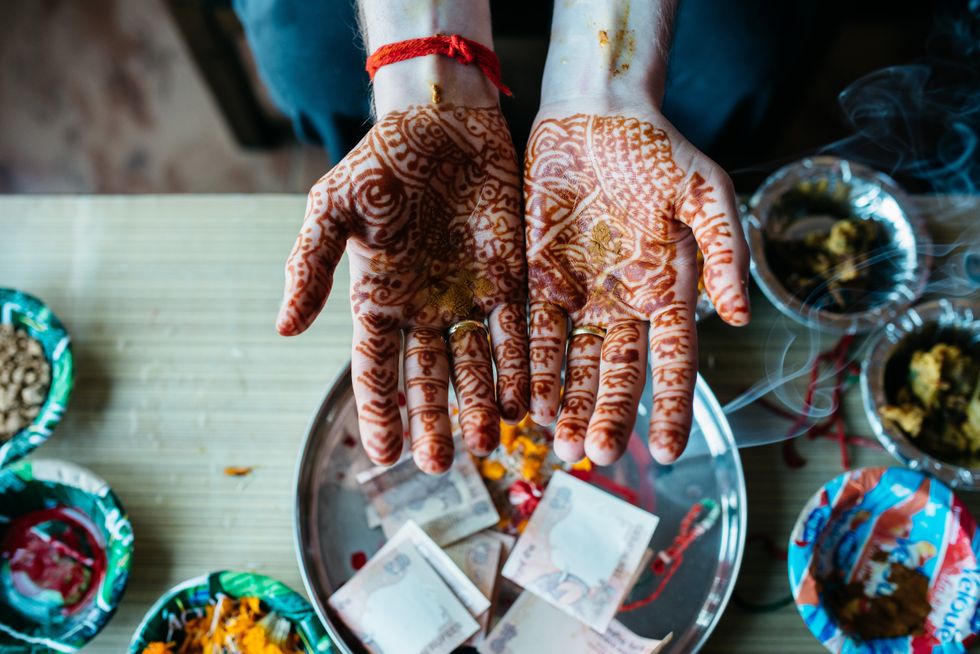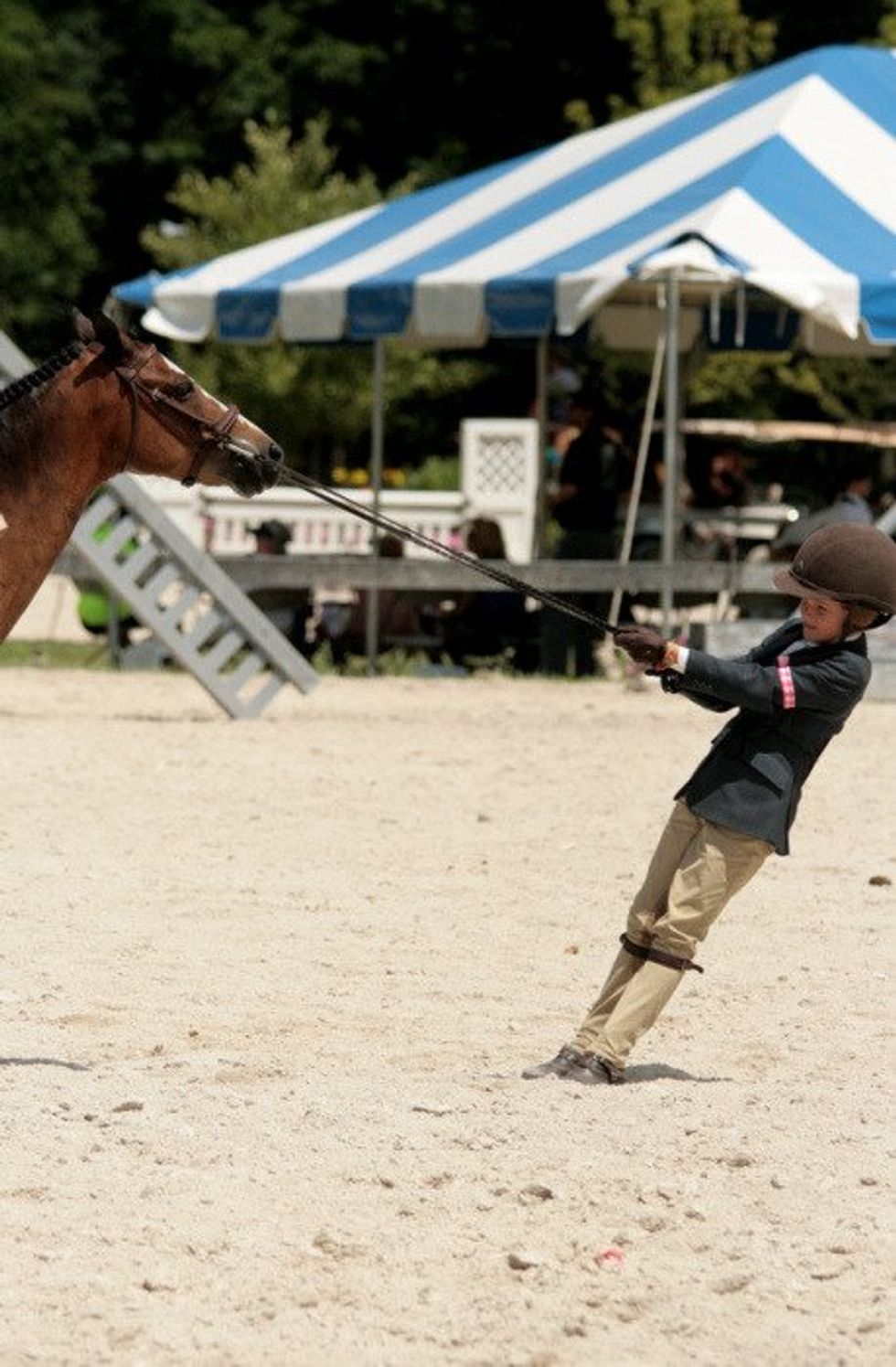Meena, an Indian woman, was kidnapped and trafficked when she was only eight years old. Sold to a brothel, she spent years as a child sex slave, one of about a million prostitutes in India who entered the sex industry unwillingly. This "trend" of modern slavery is one of the many in India that discriminate against women, or aid in the societal idea that women are in a lower class, in India, than men. Although there are many causes of this epidemic of the mistreatment of girls, there is a practice that directly affects the sexism in India, and it is a practice that could be eliminated by the enforcement of laws and teaching this young generation that equality is essential: the dowry system.
The United Nations Entity for Gender Equality was created to promote and enforce the fair treatment of all genders in all societies. However, the dowry system is a custom that is weakly enforced. In order to ensure a just lifestyle for women in India, this organization, along with the Indian government, must recognize the dowry system as problematic, and take measures to put an end to it.
The dowry is a tradition that has been in use in many countries, primarily in Asia and Africa. In this practice, the bride's family must pay the groom's family a sizeable amount of money, property or goods in order for the groom to marry the bride (1). Though the practice of demanding a dowry was outlawed in India in 1961, the tradition still remains prominent in Indian culture today. Though the system may seem like a simple, innocent tradition, it causes detrimental consequences to women and families in India. The dowry directly causes female feticide and infanticide, higher rates of domestic violence, and the discrimination of women in education and society. This custom is directly causing the decline in women's rights, and is becoming a more dangerous practice. The long term effects of this culture could be damaging to women, and the overall balance of society in India.
The dowry system is a Hindu tradition that can be traced back to ancient time. Written about in Hindu text, the origin of the dowry is written about in 1500 BC, which defines it under "laws of behavior for all social classes," claiming that women belong in a lower class than men. (1). The custom of the dowry was practiced through centuries in a male dominated society, and has caused alarming proportions of men to women over the last few decades.
Statistics show that in modern-day India, there are more female infant deaths, female abortions, female suicides and violence against women (2). So, if the dowry seems to cause these ramifications for women, why is the tradition still practiced? Ghansham explains, "The status of women in India has been a chequered one as it has seen many ups and downs...In the Verdic age, they were worshiped as goddesses. In the Muslim age, their status suffered a sharp decline. Although today, women do hold higher statuses, working as doctors, lawyers and politicians, the common Indian woman is discriminated against and consistently being held less high than males.
Throughout the modern history of India, the dowry system has been recognized as unjust, and laws have been created to restrict and prohibit the dowry. The first national law was the Dowry Prohibition Act of 1961. Then, many amendment acts were created to better the prohibition, looking to ensure the fair treatment of women in marriage, such as the Dowry Prohibition Amendment Act of 1984, the Criminal Law Act of 1983, and the Protection of Women from Domestic Violence Act of 2005 (1). These laws hoped to improve the condition of living for married women, to prosecute offenders of domestic violence, and ensure safety for those living in areas where the dowry is still an active tradition.
However, these laws are flawed, due to the lack of punishment severity of these offenders. The laws are not often enforced, and because of this, many domestic violence crimes go unreported. Offenders of these laws were frequently set free without bail or given extremely short sentences. Although these laws prohibit the use of a dowry, it has proven to be a tradition that is not easily abandoned. Marriage and dowry is a Hindu tradition and is seen as a religious sacrament. Due to the increasing price of the dowry, girl children are often seen as financial burdens to families (1). The dowry will remain a prominent part in the process of marriage until these laws are better enforced, and victims of domestic violence due to the dowry are protected.
Discrimination against girls begins before a baby is even born. Due to the development in women's rights, women have the right to choose to have an abortion. But the attitudes of expectant mothers is too often dependent on the sex of the baby. Due to the financial costs of having a daughter, families are reluctant to give birth to girls. With the advanced technology for sex determination, parents are often able to use this to prevent themselves from having a girl. Girls are seen as a financial burden, an idea often said in Indian communities, "Bringing up a girl is like watering the neighbor's plant." (3)
This idea that a girl is a financial burden, rather than a young human being, is caused by the high prices of the dowry and the treatment of the brides like property. Especially for families living in lower class conditions, having a girl child is like a sentencing to extreme poverty. By enforcing the prohibition of the dowry and teaching this young generation that all genders are equal, this gender-selective abortion could be eradicated.
For the families that do give birth to baby girls in India, those girls experience danger and discrimination from the second they are born. There are stories of mothers who suffocate or drown their own children, just to avoid the financial and social consequences of raising a girl. This "gendercide," or the intentional killing of a certain gender, begins with the female infanticide when the baby is born. (4). This infanticide is a sign of the misogynistic ideals that have been a part of the Indian society for much too long.
Due to the increasing "bride prices" or higher dowry demands, the family of the bride has trouble meeting the demands that the groom's family set. The financial aspect of the dowry puts pressure on the bride or bride's family to meet the prices. The National Crime Reports Bureau reported a 59% increase in violent crimes against women under the Dowry Prohibition Act (1). And these dowry related crimes tend to go unreported due to the lack of consequences to those who commit the crimes. India's National Crime Records Bureau reveal that 8,233 young women were killed in "dowry deaths" in 2012.
Pravartika Gupta was one of these young women, burned to death in her bedroom by her husband, as she slept in bed with her one year old daughter. Her husband murdered her because her family could not keep up with the dowry payments that the groom's family had demanded (3). Incidents like these happen more often than the media would admit, and the offenders are often not arrested or given short sentences. This weakness in the dowry prohibition laws is enabling the rise in domestic violence and dowry deaths. If these laws were correctly enforced, the dowry system may fade out, improving the living conditions of women all across India.
For the millions of families in India that do have girl children, so many of these girls face discrimination in every aspect of their life. Girls are often denied the right to education, resulting in few women growing up and working for pay. Starting when a girl is a baby, families are reluctant to take a girl to get vaccinated, or to a hospital when she is sick, in contrast to the boys who are treated medically sufficiently more than girls. Because the girl is already seen as a financial burden to the family, parents are much less likely to spend more money on the child. All relating back to the idea that girls are seen as financial burdens and property that is in direct relation to the dowry.
The root of the problem of the dowry system in India is a long history of a patriarchal society. Men have been higher class citizens than women for hundreds of years now, and therefore the dowry system was born. (1). Through this system, the security rights of these women are being violated because many of the women are being put in dangerous situations through the dowry system. They are also being denied economic freedoms and independence, as well as having their subsistence rights taken away. The dowry system as a whole is a violation of women's rights in India, and must be put to an end.
The growing epidemic of violent, dowry-related incidents in India is a problem that must be eliminated, by evolving the society to treat girls as equal members of society. Women are already making their value known, fighting for equal opportunities and rights. And when mothers teach their children equality, this young generation will have the ability to grow up carry these values with them. Meena, the Indian mother and former sex slave, sings a song to her two daughters:
"India will not be free,
Until it's women are free.
What about the girls in this country?
Put your hand on your heart and ask.
Is this country truly independent?" (Kristoff, WuDunn, Half the Sky).
Kristoff and WuDunn also assert their thesis and purpose of their book, Half the Sky, by stating, "Women aren't the problem, but the solution. The plight of girls is no more a tragedy than an opportunity." This problem is not one that can be solved by purely laws. But it is also not one that can be solved by simply voices and opinions. But the combination of well enforced laws, with help from the United National Entity for Gender Equality, and teaching this generation equality, the dowry system can be put to a stop for good, benefitting Indian society. Wiping out the dowry system is vital to the balance of society. If the consequences of the dowry persisted, the ratio of men to women could become skewed.
As boys grow older, if girls have been killed over their lifetime, there will be fewer girls to become eligible wives, therefore disrupting the balance of the society in India. As stated in Half the Sky, the women are not the problem in this situation. The women of India can be the solution, by not accepting these discriminatory standards, the dowry system will not survive. In the future, with the help of governments and citizens, all genders can live as equals all around the world by simply denying sexist practices, such as the dowry, which has caused turmoil and danger to the women of India.

















 teenhorseforum
teenhorseforum














